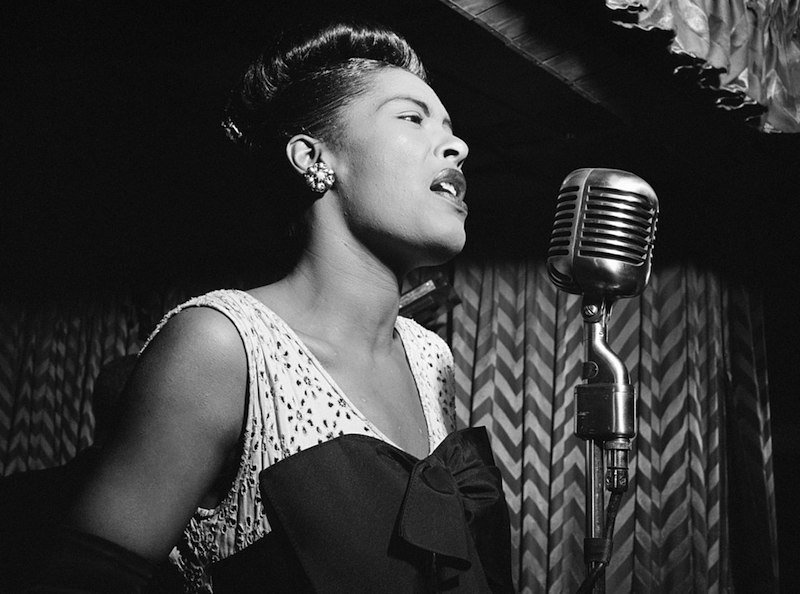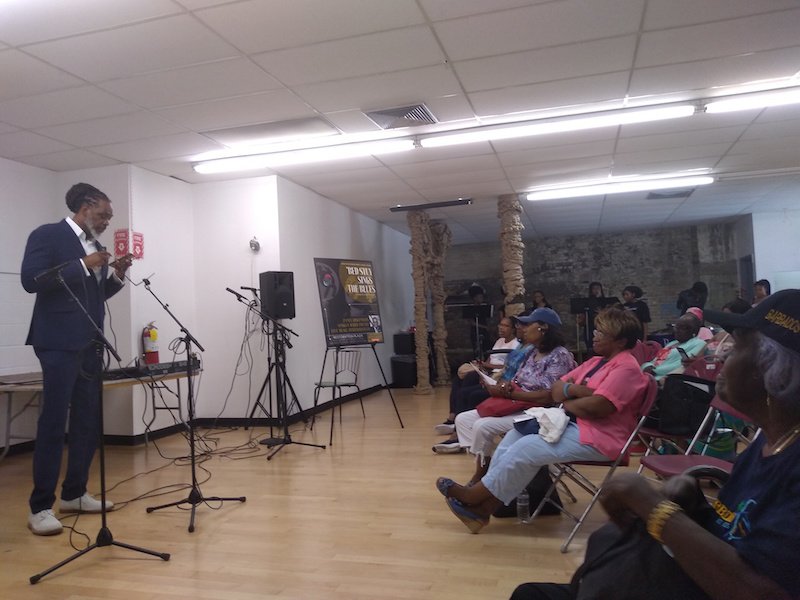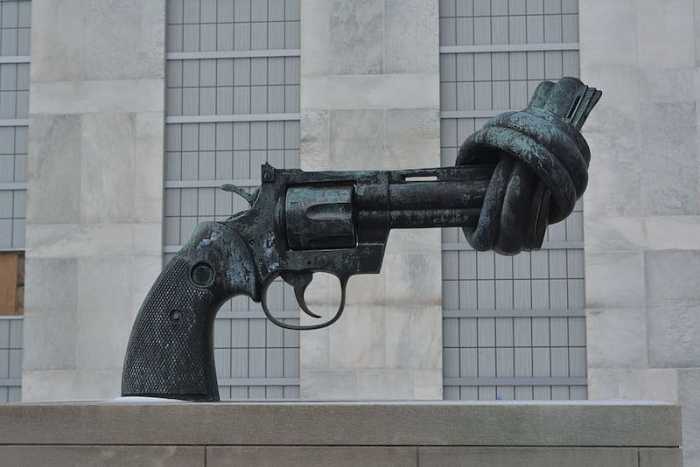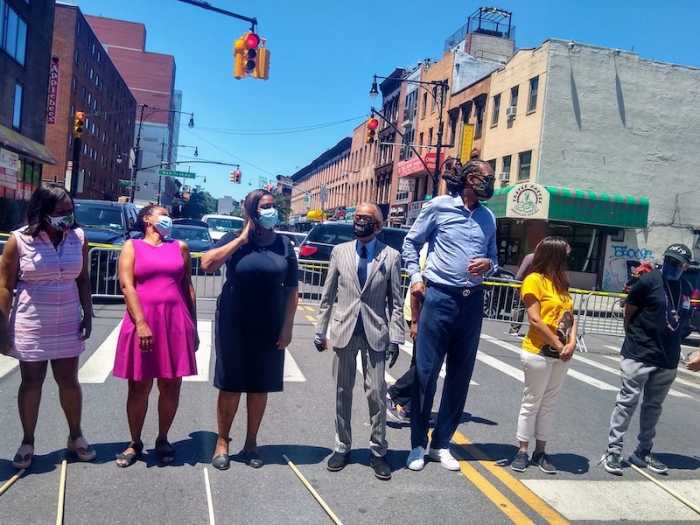City Councilmember Robert Cornegy (D-Bedford-Stuyvesant, Northern Crown Heights) crusaded against the mental health stigma last Saturday with an exploration of the healing effect of music.
The event, dubbed Bed Stuy Sings The Blues, held at Bed-Stuy’s Restoration Plaza, 1360 Fulton Street, was created in an effort to enhance mental health awareness and literacy and destigmatize mental health care, particularly within the black community.
“I’m very passionate about education in and around mental health, especially in our community,” said Cornegy. “Events like these keep us connected through community, arts, and culture.”
The positive impact of jazz music on mental health was the focus of the event, with an emphasis on the music of Billie Holiday.

“There are various ways that we heal,” said psychiatrist Dr. Tolu Opulona. “There’s a form of therapy called music therapy that we use to treat disorders like depression, anxiety, and PTSD. In that therapy you create your own music, listen to music and over time get better. It’s a very powerful form of therapy.”
The event included charming performances of classic jazz standards by The Noel Pointer Foundation, R&B singer Shinuh, and spoken word artist Truth.
A panel discussion included social workers, psychologists, and clinical specialists. The experts speculated on Holliday’s own mental state and if her troubled life (she had various drug addictions and abusive relationships) could have been saved by therapeutic intervention.
“Although it is not documented that Billie Holiday was mentally ill, she sang about the blues. About her sorrow and her pain. She used vices to deal with them, with tragic results,” said a panelist.
Black people are 20% more likely to have mental health issues according to psychologist Dr. Dana Collins. Stigma and a lack of resources are the primary reasons, according to the panel, that the black community doesn’t receive adequate mental health care.
“We as black people face a lot of overt racism, systemic racism, these harmful experiences contribute to us having higher instances of mental health concerns,” said Collins. “It takes a very strong resilient people to overcome what we [black people] have overcome. But being strong doesn’t mean you don’t need help or aren’t affected by the forces around you.”









